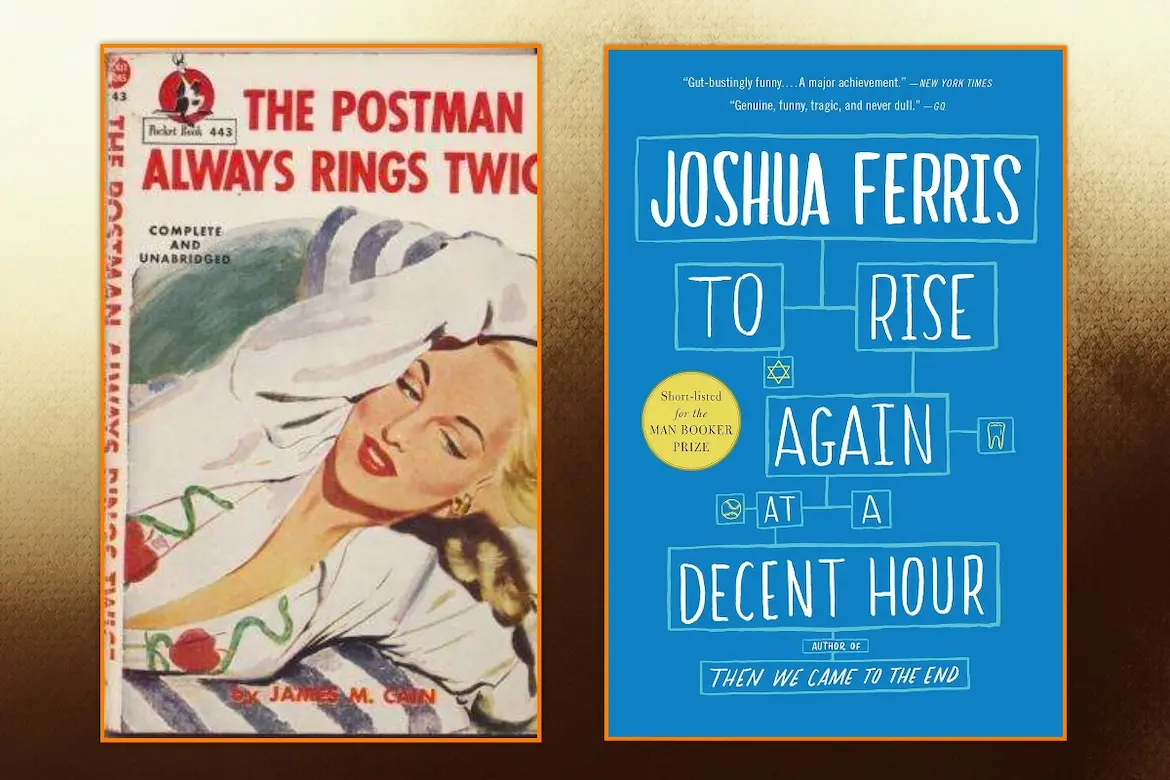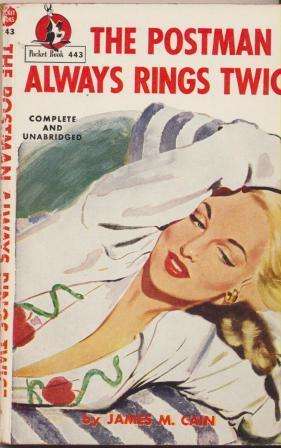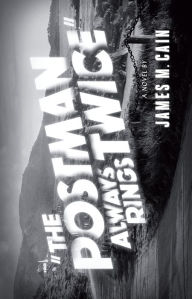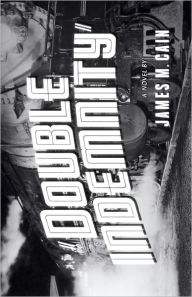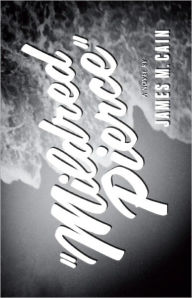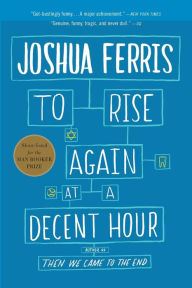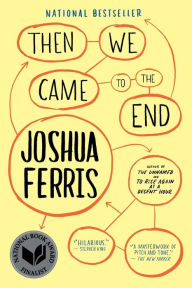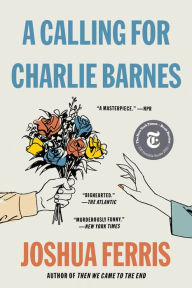This week our LitStack Rec revisits a Noir classic, The Postman Always Rings Twice, by James M. Cain, and the stream of consciousness novel To Rise Again At A Decent Hour.
You can find and buy the books we recommend at the LitStack Bookshop on our list of LitStack Recs.

In This LitStack Rec
The Postman Always Rings Twice, by James M. Cain
James M. Cain never spoke like his characters. In a 1977 interview with the Paris Review, he remembered Harold Ross describing what got him hired at the New Yorker. Ross said, “I began to realize as I listened to you talk, that none of your infinitives were split, all of your pronouns were correct, and that none of your participles dangled.” To which Cain added, “That was true. I talked the way my father had beat into me; he was a shot for style, and that’s what got me a job.”
As it turns out, it’s a good thing the characters in Cain’s iconic roman noir, The Postman Always Rings Twice, don’t have the elevated speaking style of their author. Cain started out as a journalist, and emulating his colleague Sinclair Lewis (at the time a writer for the Saturday Evening Post, until the publication of Main Street), wrote fiction on the side.
Cain completed four novels before the success of Postman, which was published in 1934 to immediate success. Banned in Boston for its portrayal of violence and eroticism, the novella (just over one hundred pages) established Cain as a major novelist, and was acknowledged by Albert Camus as the model for The Stranger. In 1998, the book was included in the Modern Library’s list of top one hundred best novels.
Unlike crime stories of the time, Postman was among the first to portray events as the perpetrator saw them, much like Josef von Sternberg’s 1927 Underworld, one of the earliest films to portray the gangster’s point of view. Postman’s narrator is the drifter Frank Chambers, the protagonist and perpetrator of the crime. A hitchhiker dumped off a hay truck, he stumbles onto the roadside concession of Nick Papadakis and his bored, beautiful young wife, Cora.
I’m embarrassed to admit I haven’t read a lot of noir, or much of the mystery genre, and noticed right away the lack of descriptive language, save for the occasional simile of the kind that characterizes the noir style. Frank’s narration never shifts into the deeper level of thought and feeling you might expect in a first-person narrator. For Cain’s characters, feelings exist off the page, and are instead suggested by quick detail, as in this exchange between Frank and Cora:
“Why did you marry him? You never did tell me that.”
“I haven’t told you anything.”
“We haven’t wasted any time on talk.”
“I was working in a hash house. You spend two years in a Los Angeles hash house and you’ll take the first guy that’s got a gold watch.”
“When did you leave Iowa?”
“Three years ago. I won a beauty contest. I won a high school beauty contest, in Des Moines. That’s where I lived. The prize was a trip to Hollywood. I got off the Chief with fifteen guys taking my picture, and two weeks later I was in the hash house.”
“Didn’t you go back?”
“I wouldn’t give them the satisfaction.”
Cain based the novel on a notorious murder trial, the Snyder-Gray case of 1927, in which a Queens housewife, Ruth Snyder, and a corset salesman, Henry Judd Gray, murdered Ruth’s wealthy husband for his insurance policy. Cain was one of the journalists covering the trial, and he used specific events of the affair, the crime, the trial’s outcome—and made use of the material again in Double Indemnity. Of writing Postman, he said:
“The big influence in how I wrote The Postman Always Rings Twice was this strange guy, Vincent Lawrence, who had more effect on my writing than anyone else. He had a device which he thought was so important—the “love rack” he called it . . . the poetic situation whereby the audience felt the love between the characters. He called this the “one, the two and the three.” Someone, I think it was Phil Goodman, the producer and another great influence, once reminded him that this one, two, and three was nothing more than Aristotle’s beginning, middle, and end. ‘Okay, Goody,’ Lawrence said, ‘who the hell was Aristotle, and who did he lick?’ I always thought that was the perfect Philistinism.”
Cain is the perfect filter for the lurid real-life events, giving them structure and style, or as then-President of Columbia Studios, Harry Cohn, called it, “algebra.”
The voice of Frank Chambers is strangely reliable, his first-person account is a confession, after all, and has what might be clinically referred to as lack of affect. In reading Cain’s book, I discovered that what I thought I most enjoyed about fiction—swimming in the consciousness of a character unlike myself— the lack of internal view couldn’t have mattered less. The stress on outward action and the absence of description are devices with a purpose. In leaving out description, Cain hasn’t sacrificed anything. It’s part of the brilliance of his approach, the hard protective case that gives the story its shape, and it’s the reward at the center of the mystery.
So is there any trace of Cain, that speaker of perfect sentences, in The Postman Always Rings Twice? As it turns out, there is. “It was my story, too,” he confessed to the Paris Review, “especially with the lingo in the mouth of a hobo with good grammar, like they have in California.”
—Lauren Alwan
Other Titles by James M. Cain
To Rise Again at a Decent Hour, by Joshua Ferris
If you are the type of person who loves to really get into the mind of the main character of a book, who isn’t daunted by paragraphs full of stream of consciousness musings that ramble on unbroken for pages, who enjoys imaginative discussions about various religions and the meaning of faith (or who is a fan of the Boston Red Sox), then boy, do I have a book for you!
Paul O’Rourke is a thirty-something dentist with a private practice in a not-so-swanky (but still!) address on Park Avenue in New York. Unmarried, and with self-defeating relationship issues (such as, when he falls for a woman, he falls so hard that he usually ends up losing himself in the process), he’s living a somewhat ambivalent, full-of-routine, but comfortable life when an unknown personage begins to impersonate him online.
Benignly at first (as in, creating a nice looking but ostensibly un-ostentatious website, something his employees have been urging Paul to do but he had, for somewhat cranky reasons, resisted), this mystery person slowly begins to utilize social media in Paul’s name to pique online interest in an ancient and obscure belief system based not on faith, but on doubt. Since Paul, although professing to be an atheist himself, has fixated in the past on the faith of his girlfriends (Catholicism, Judaism), he’s both intrigued by the ideas expressed by his pseudo-self and pissed as hell about how they are being promulgated.
But, as Paul is a man of internal discourse rather than action (or technical savvy), his online interloper is pretty much given free reign, eventually drawing in even Paul himself.
There’s not a lot of action in this book, and there’s a heckuva lot of listening to Paul’s inner dialog, but it really takes the reader deep into the question of where our values rise from and why we cling so tightly to our beliefs. Author Ferris also writes Paul as a smart aleck, in-your-face intellectual (after all, when much of what is being written is inside the main character’s head, there’s not a huge need to self-police those thoughts), which is both shocking, at times embarrassing, hilarious, and occasionally touchingly recognizable.
And as an added bonus, after reading To Rise Again at a Decent Hour, you’ll more highly appreciate a regimen of good oral hygiene. You may even floss religiously for a week or so.
— Sharon Browning
Related Titles
Other LitStack Resources:
Be sure and look at our other LitStack Recs for our recommendations on books you should read, as well as these reviews by Lauren Alwan, and these reviews by Sharon Browning.
As a Bookshop, BAM, Barnes & Noble, Audiobooks.com, Amazon, and Envato affiliate, LitStack may earn a commission at no cost to you when you purchase products through our affiliate links.
You can find and buy the books we recommend at the LitStack Bookshop on our list of LitStack Recs.


